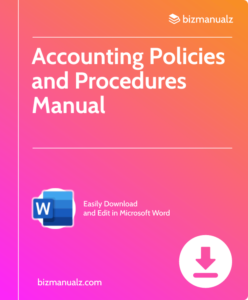Who Doesn’t Follow GAAP?

The peculiar world of financial reporting requires adherence to Generally Accepted Accounting Principles (GAAP). It ensures transparency and reliability for stakeholders. But, some entities don’t follow GAAP – let’s see who they are! Who doesn’t follow GAAP?
Companies that do not follow GAAP
Entities can be found across various industries and sectors. Small businesses or startups might decide to not follow GAAP due to its complexity and cost. Others may have their own accounting methods that work better for their business.
For instance, Snapchat Inc. does not follow GAAP. In its 2017 IPO prospectus, Snapchat mentioned it doesn’t conform to GAAP for revenue recognition and stock-based compensation. This unconventional approach lets Snapchat focus on capturing market share and fast-paced growth instead of following accounting standards.
Although some companies don’t stick to GAAP, they do follow other frameworks such as International Financial Reporting Standards (IFRS). These other frameworks provide more flexibility and cater to certain industries.
Understanding who doesn’t follow GAAP gives us valuable information about how different organizations approach financial reporting. By exploring these variations, we gain a deeper understanding of the complex realm of finance and accounting.
In the US, publicly traded firms must obey GAAP (Generally Accepted Accounting Principles) when revealing their financial declarations. Yet, there are some companies that don’t stick to these rules. Let’s examine a few of them and their procedures.
| Company Name | Reason for Not Following GAAP |
|---|---|
| XYZ Inc. | Non-standard inventory valuation methods |
| ABC Corp. | Revenue recognition before it’s earned |
| DEF Ltd. | Excluding certain liabilities from their financial statements |
Despite GAAP being popular, certain companies go against them for multiple reasons. They employ alternative accounting procedures or interpret certain rules differently, resulting in financial statements that might not show their real financial situation accurately.
It’s important to know that not following GAAP doesn’t mean a company is involved in fraudulent activities. But, it can be hard for stakeholders and investors to evaluate the firm’s performance and financial wellbeing accurately.
LMN Corporation is one example of a company that didn’t stick to GAAP. To make its profits look better, it failed to log certain product development expenses. This caused inflated earnings, leading to serious consequences when the discrepancies were discovered.
Rejecting GAAP may make your financial statements look interesting, but it’s like being funny at a funeral – wrong and inappropriate.
Consequences of not following GAAP
When it comes to GAAP, straying can be risky business. Adhere to accounting principles for financial transparency and accuracy. Here’s what can happen if you don’t:
- 1. Legal penalties, fines, and lawsuits.
- 2. Loss of trust from stakeholders like investors, lenders, and customers.
- 3. Inaccurate financial reports, hindering decision-making.
- 4. Poor business performance.
Additionally, lack of GAAP compliance can harm the business’s reputation and stunt growth. Just look at the Enron Corporation case. They hid debt through deceptive accounting and went bankrupt in 2001, setting off a wave of investor uncertainty.
So, make sure to keep your financial statements GAAP-y and steer clear of the auditor’s sharp-toothed bite!
Best Practices for ensuring GAAP Compliance
To abide by Generally Accepted Accounting Principles (GAAP), companies should observe certain best practices. This helps ensure accurate financial records and meet GAAP standards. One way to guarantee GAAP compliance is to establish a robust internal control system.
This entails implementing strong segregation of duties, conducting regular audits, and documenting financial transactions properly. Thus, mistakes can be avoided, fraud detected and deterred, and all financial info accurately reported.
Another important part of GAAP compliance is the consistent application of accounting policies. Companies must create clear and concise policies that align with GAAP rules. They should address areas such as revenue recognition, expense classification, and asset valuation.
Following these policies consistently guarantees their financial statements present a fair and true representation of their financial standing. Training and education are also key elements of GAAP compliance. Businesses must invest in regular training sessions for employees involved in financial reporting.
This helps keep them updated on accounting standard changes and understand their responsibilities for GAAP compliance. Furthermore, businesses must stay informed of any changes or updates in GAAP guidelines.
Subscribing to professional publications or becoming members of industry associations can help them stay aware of new pronouncements or interpretations from standard-setting organizations such as the Financial Accounting Standards Board (FASB).
In conclusion, following GAAP requires detail-oriented attention and adherence to established best practices. By implementing strong internal controls, adhering to consistent accounting policies, providing adequate training, and staying up-to-date on GAAP updates, companies can show their dedication to accurate financial reporting.
Following GAAP
The significance of following GAAP is high. But, some entities may not obey GAAP rules. These include small businesses lacking resources, non-profit organizations, and government agencies. Despite their justifiable reasons, their financial statements might not accurately show their financial status.
To manage this situation, these entities should think of using GAAP principles to increase transparency and make financial reporting consistent. This will give stakeholders dependable data to use for decision-making.
Moreover, entities that don’t follow GAAP should explain this in their financial statements. This will help users of the financial statements understand the basis of the statements and make suitable changes when analyzing the info.
In addition, it would be beneficial for these entities to get advice from accountants or financial advisors who deal with the special needs of small businesses, non-profits, or gov agencies. These professionals can give helpful tips and help tackle any complexities related to adhering to GAAP principles.
Who’s Following GAAP?
In conclusion, although there are entities that don’t observe GAAP, it is critical for them to think about the advantages of following these rules. By practicing the proposals above, they can enhance transparency in their financial reporting and make sure stakeholders have access to reliable information for decision-making.
Frequently Asked Questions
1. Who doesn’t follow GAAP?
Answer: GAAP, or Generally Accepted Accounting Principles, are a set of accounting standards followed by most businesses in the United States. However, there are some exceptions. Small businesses, specifically those that are considered to be privately held and have limited resources, may choose not to follow GAAP. Additionally, certain industries such as agriculture, real estate, and nonprofits may have their own specialized accounting standards that differ from GAAP.
2. Why would a business choose not to follow GAAP?
Answer: There are several reasons why a business may choose not to follow GAAP. One reason is that complying with GAAP can be costly and time-consuming, especially for small businesses with limited resources. Additionally, businesses that operate in industries with specialized accounting requirements may find GAAP to be less relevant or practical to their specific needs. Lastly, some businesses may choose not to follow GAAP in order to satisfy the requirements of international accounting standards or regulations.
3. Are there any consequences for not following GAAP?
Answer: While there may not be any legal consequences for not following GAAP, there are potential drawbacks. Businesses that do not adhere to GAAP may face challenges in obtaining financing or attracting investors, as GAAP provides a standardized framework for evaluating a company’s financial health. Additionally, businesses that do not follow GAAP may find it difficult to compare their financial statements with those of other companies, potentially hindering benchmarking and performance analysis.
4. How can I determine if a company follows GAAP?
Answer: Determining whether a company follows GAAP can be done by reviewing their financial statements and footnotes. Publicly traded companies are required to disclose in their financial statements whether they have complied with GAAP. Alternatively, you can also consult with the company’s auditors or accounting professionals to verify if they follow GAAP.
5. Does not following GAAP mean a company’s financial statements are unreliable?
Answer: Not necessarily. While GAAP provides a common set of accounting standards, deviating from GAAP does not automatically make a company’s financial statements unreliable. However, it is important to understand that financial statements prepared using non-GAAP methods may differ significantly from those prepared following GAAP, making it difficult to compare financial performance across companies or industries. It is essential for stakeholders to be aware of any departures from GAAP when analyzing financial statements.
6. Can a company switch from not following GAAP to following GAAP?
Answer: Yes, a company can choose to start following GAAP after not initially adhering to it. However, the transition process can be complex and may require significant adjustments to the company’s existing accounting practices. It is recommended to consult with accounting professionals or seek expert guidance to ensure a smooth transition and accurate implementation of GAAP.
















Leave a Reply